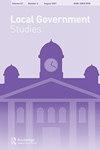刺激公民行为?激励自我组织的悖论
IF 1.9
4区 管理学
Q2 POLITICAL SCIENCE
引用次数: 5
摘要
本文章由计算机程序翻译,如有差异,请以英文原文为准。
Stimulating civic behavior? The paradoxes of incentivising self-organization
ABSTRACT Crowding theory has highlighted the unintended consequences that well-meant financial incentives can have on behaviour. Using field research, this study applies crowding theory to self-organising citizens’ initiatives in the Netherlands. Citizens’ initiatives create different kinds of goods and services and are sometimes supported by governmental ‘citizens’ initiatives stimulation funds’. We found that (1) the crowding effect is multifaceted; (2) the psychological processes and mechanisms of crowding in and out are subtle and can happen simultaneously; (3) in some instances, stimulation funds seem to have affected the preferences of the initiatives, such as expectations about the funds’ presence and procedures; and, (4) stimulation funds are well-suited to instrumentally support the initiatives in realising their plans and ambitions, but less suited in fostering civic behaviour or spontaneous self-organisation. Our research raises important considerations about the possibilities and constraints for stimulating civic behaviour through stimulating citizens’ initiatives.
求助全文
通过发布文献求助,成功后即可免费获取论文全文。
去求助
来源期刊

Local Government Studies
Multiple-
CiteScore
4.80
自引率
15.80%
发文量
43
期刊介绍:
Local Government Studies is the leading journal for the study of local politics, policy, public administration and management and governance. First established in 1975, it is an influential forum for critical dialogue and exchange on local government and a vital resource for academics, politicians, policy makers and practitioners internationally. The editors welcome submissions in this field, particularly work of a comparative, methodologically innovative and theoretically challenging nature.
 求助内容:
求助内容: 应助结果提醒方式:
应助结果提醒方式:


